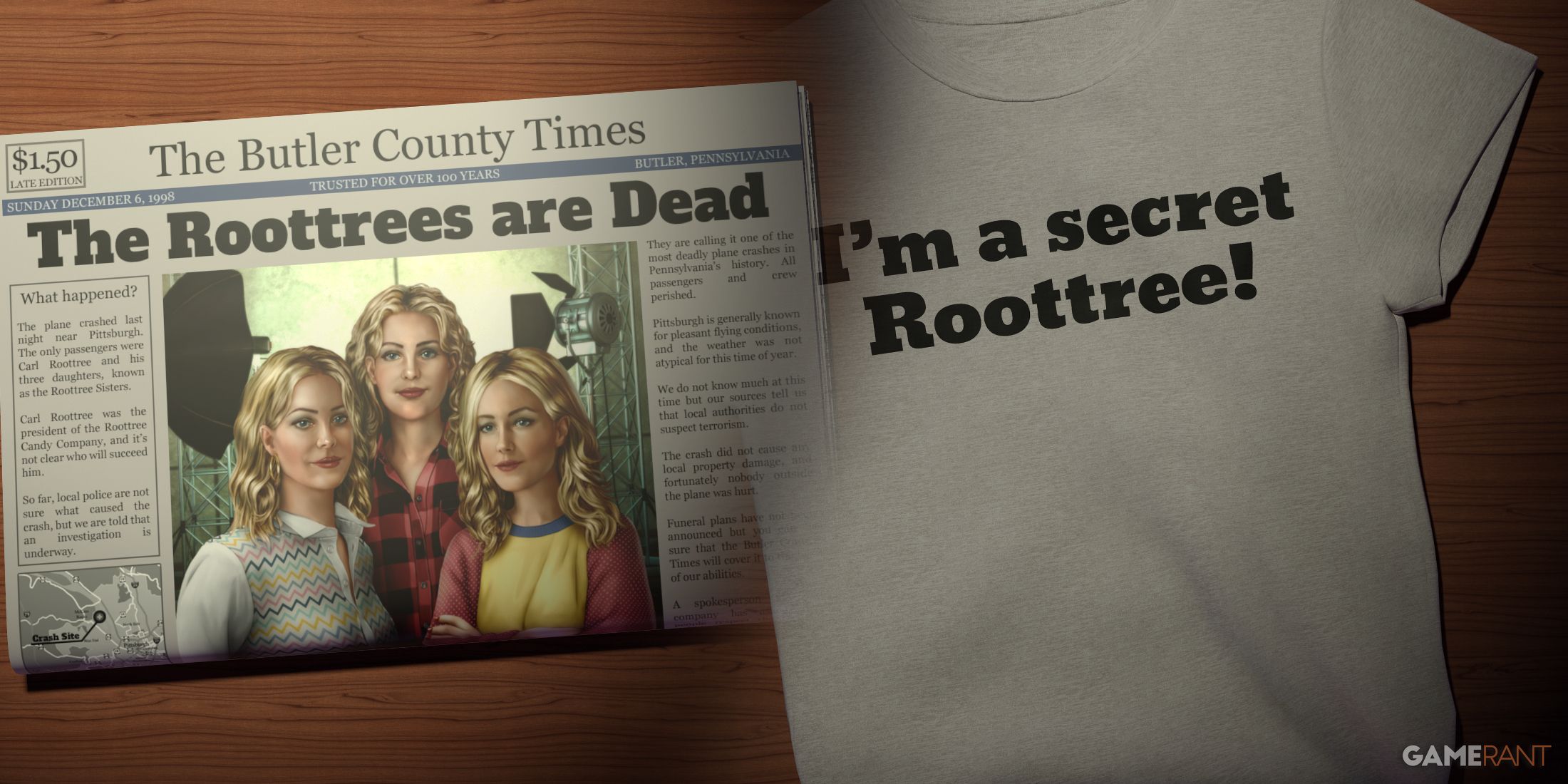
The game titled “The Roottrees are Dead,” developed by Robin Ward, is an investigative narrative experience. Following a tragic plane crash that claimed the lives of Carl Roottree, his spouse, and their daughters, an unidentified informant aims to locate surviving family members and distribute the inheritance. As players delve deeper into this mystery, they’ll find themselves piecing together a vast family tree. The game conceals within its investigative resources a captivating story that players must unravel. Additionally, those who finish the story in the latest Steam version will be rewarded with a sequel, “Roottreemania,” which delves further into the central theme of clue-finding.
What sets apart “The Roottrees are Dead” is its distinct approach to detective games, as it equips players with a computer, desk, and a corkboard for investigation. Instead of traditional methods, players explore the mystery by searching online articles and gradually piecing together clues. Additional features like optional family-unrelated spouse entries and photo organization tasks ensure an engaging and lengthy unraveling of the Roottree family’s history. However, the game tends to linger a bit too long, with some unnecessary filler that diminishes the impact of the mystery’s resolution, making “The Roottrees are Dead” somewhat overextended in places.
The Roottrees are Dead Delivers on Keeping a Mystery in the Dark
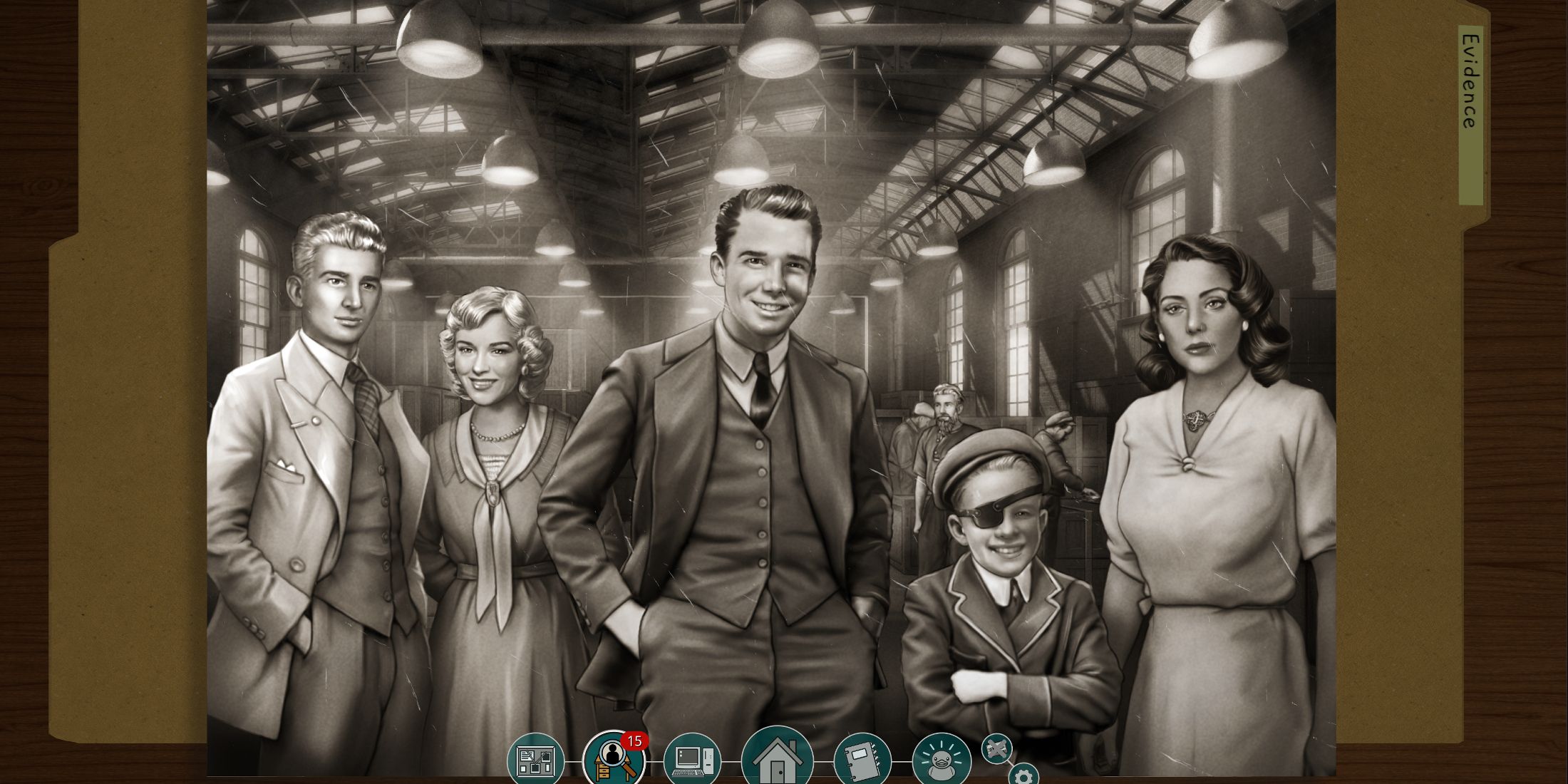
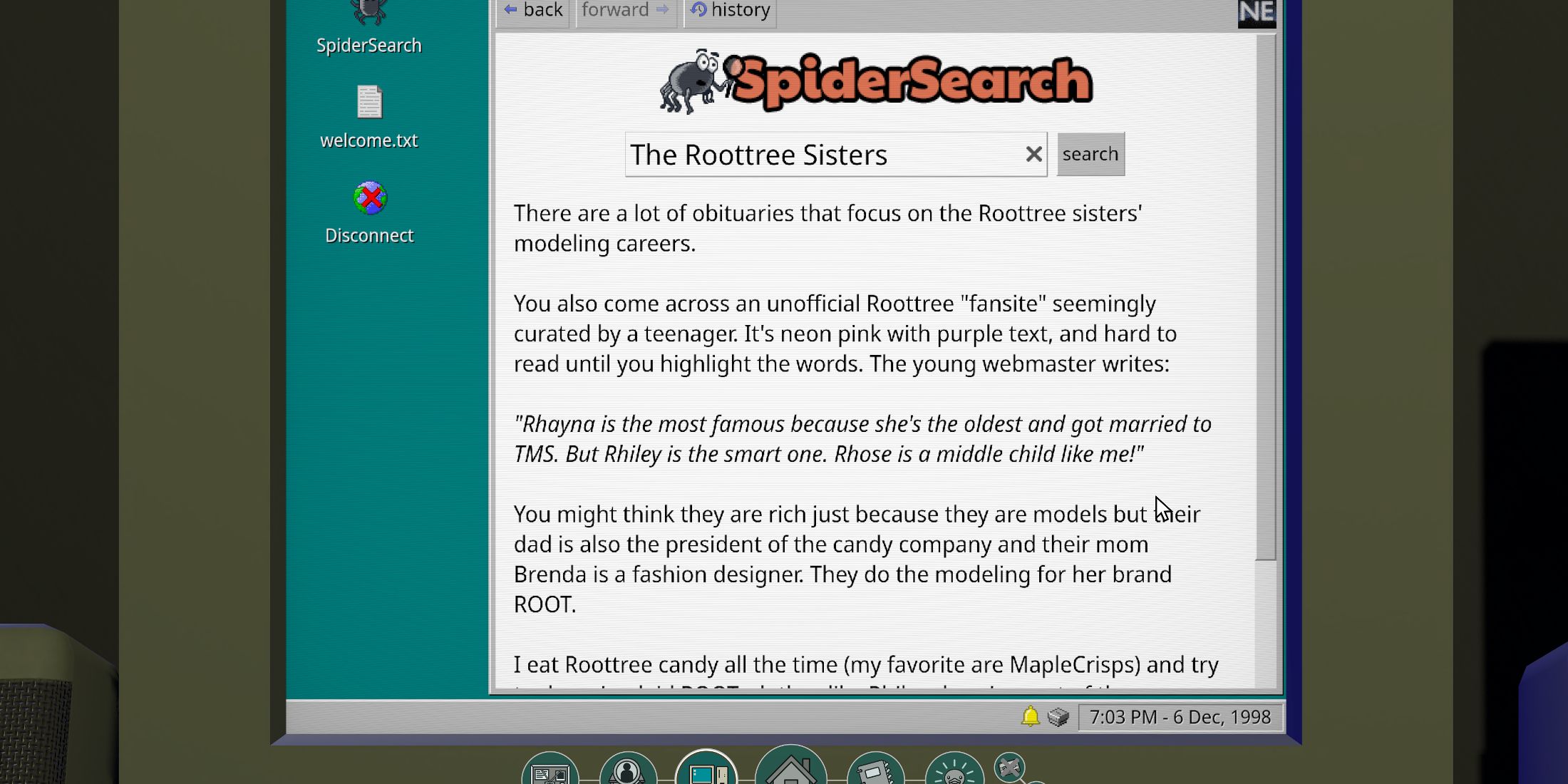
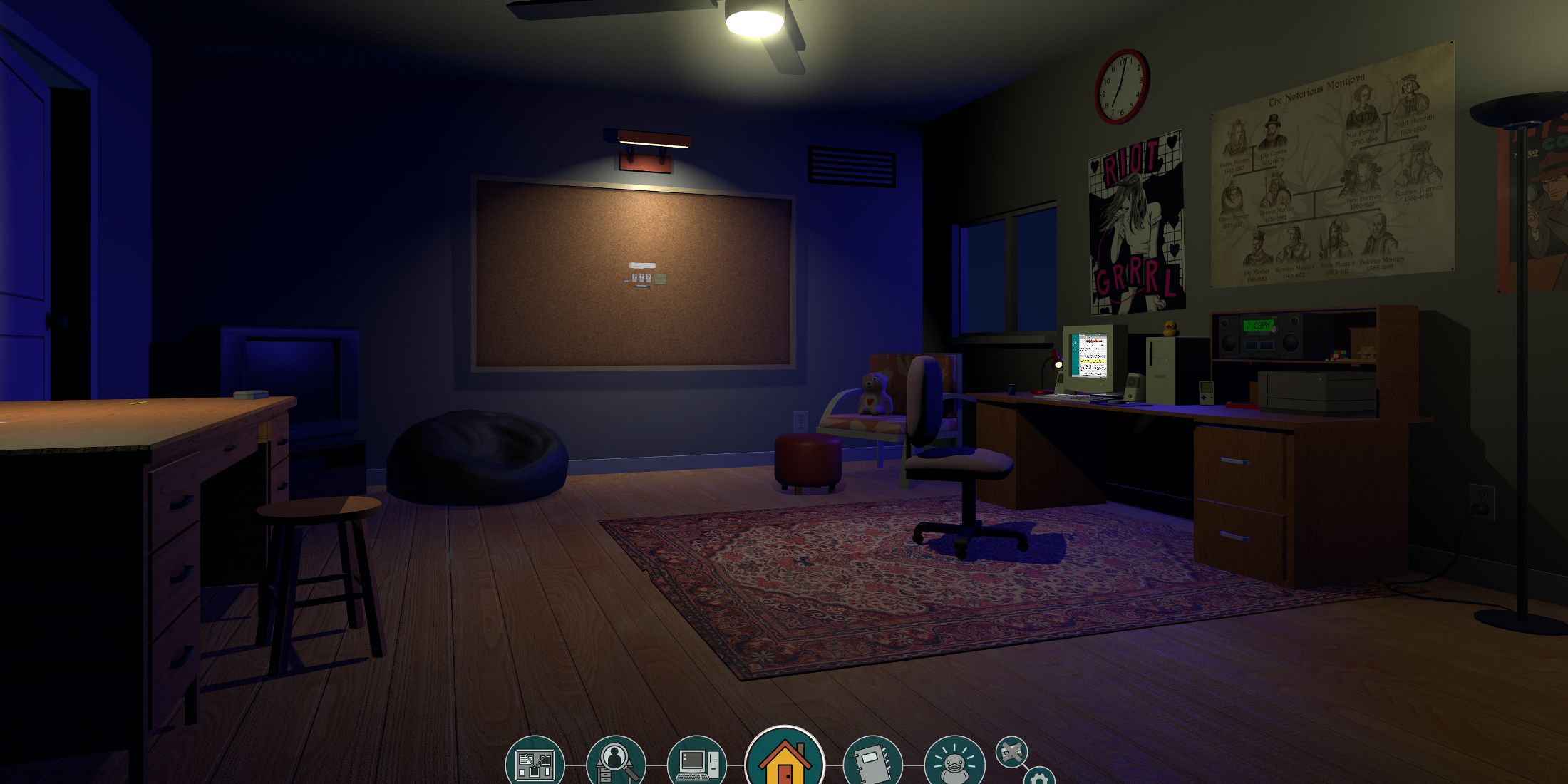
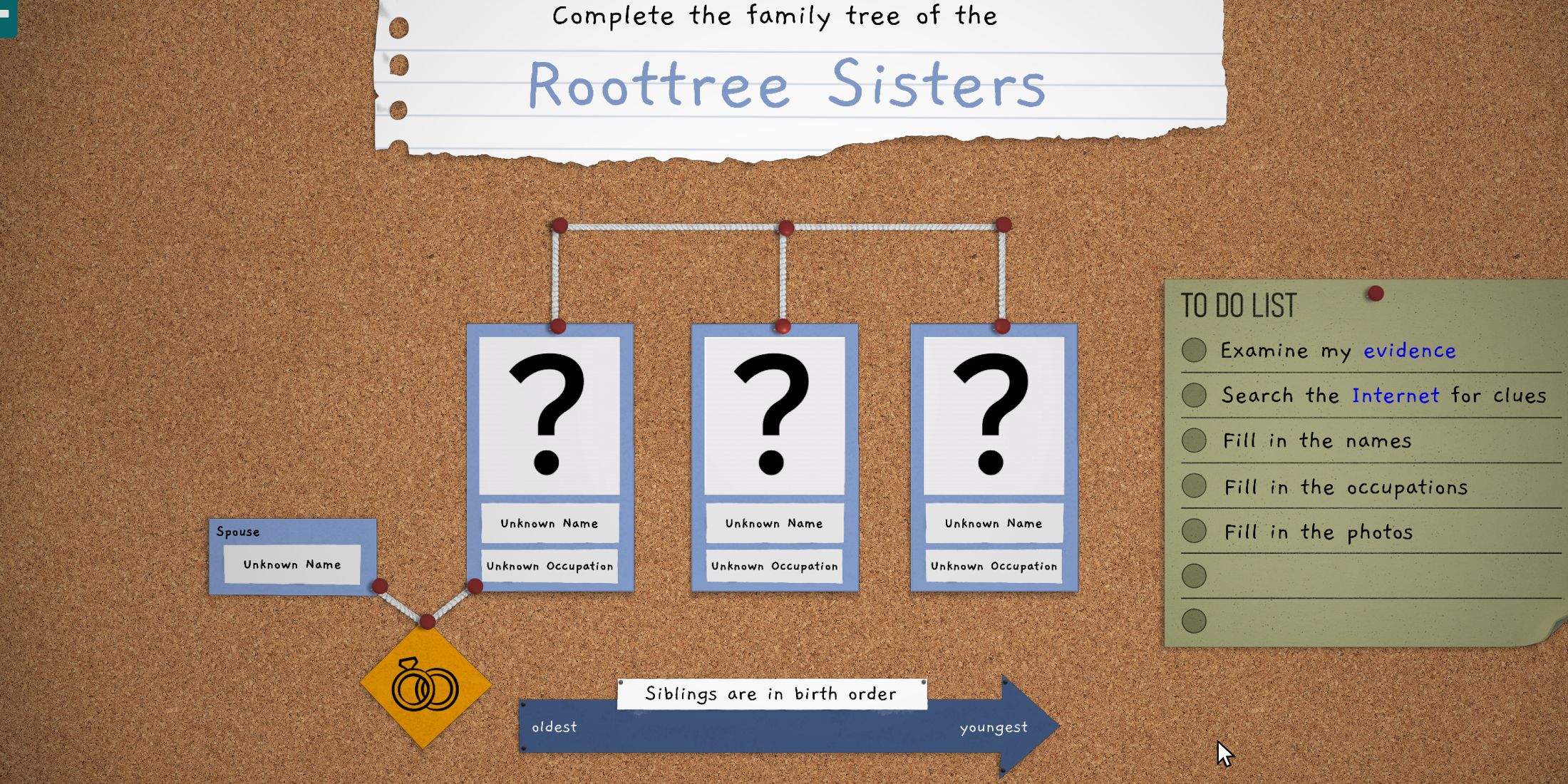

The Roottree family prefers their ancestry not be intensely examined, as players will discover when they delve into the story. This detective game is quite distinctive because it’s all done covertly without many obvious clues. Most of the information in The Roottrees are Dead is obtained by comparing evidence and online research. The game design encourages swift navigation between the family tree, evidence list, and computer, where players can highlight and copy crucial phrases for later use. What adds to the excitement is an in-game notebook where players can jot down quick thoughts and manage the timeline as the plot thickens. As Roottrees unfolds, players may find themselves deeply immersed in this notebook.
What sets “The Roottrees are Dead” apart from other investigative titles is its unique feature – consulting a rubber duck for hints. This isn’t just a humorous nod to programming debugging, but also a helpful tool that provides vague hints at first, gradually becoming more obvious until it reveals the solution. This guidance helps players find the right path and the hints are contextually relevant based on the information available. Although “The Roottrees are Dead” doesn’t have an easy mode, this little rubber duck companion can be a valuable aid for those who get stuck.
As a seasoned movie critic, I must admit that the minimalist aesthetic of “The Roottrees are Dead” may take some getting used to – think corkboard backdrops, wooden tables, and vintage computer monitors. However, the game’s artistry in pictures and other evidence is nothing short of breathtaking, setting a captivating atmosphere. The open-source jazz soundtrack serves as an excellent companion for those immersed in researching and reading about the intricate history of the Roottree Candy Company. The intriguing tales of each family member’s life make uncovering their hidden secrets tantalizingly alluring, with writing that skilfully highlights the clues.
However, as one delves deeper into the game, it becomes apparent that “The Roottrees are Dead” relies heavily on threads, which may leave some players feeling a tad unfulfilled if they seek a more substantial narrative experience. Nonetheless, for those who appreciate a well-crafted mystery with a touch of elegance, this game could be just what the detective order is.
The Pacing in The Roottrees are Dead Gets as Thick as Syrup
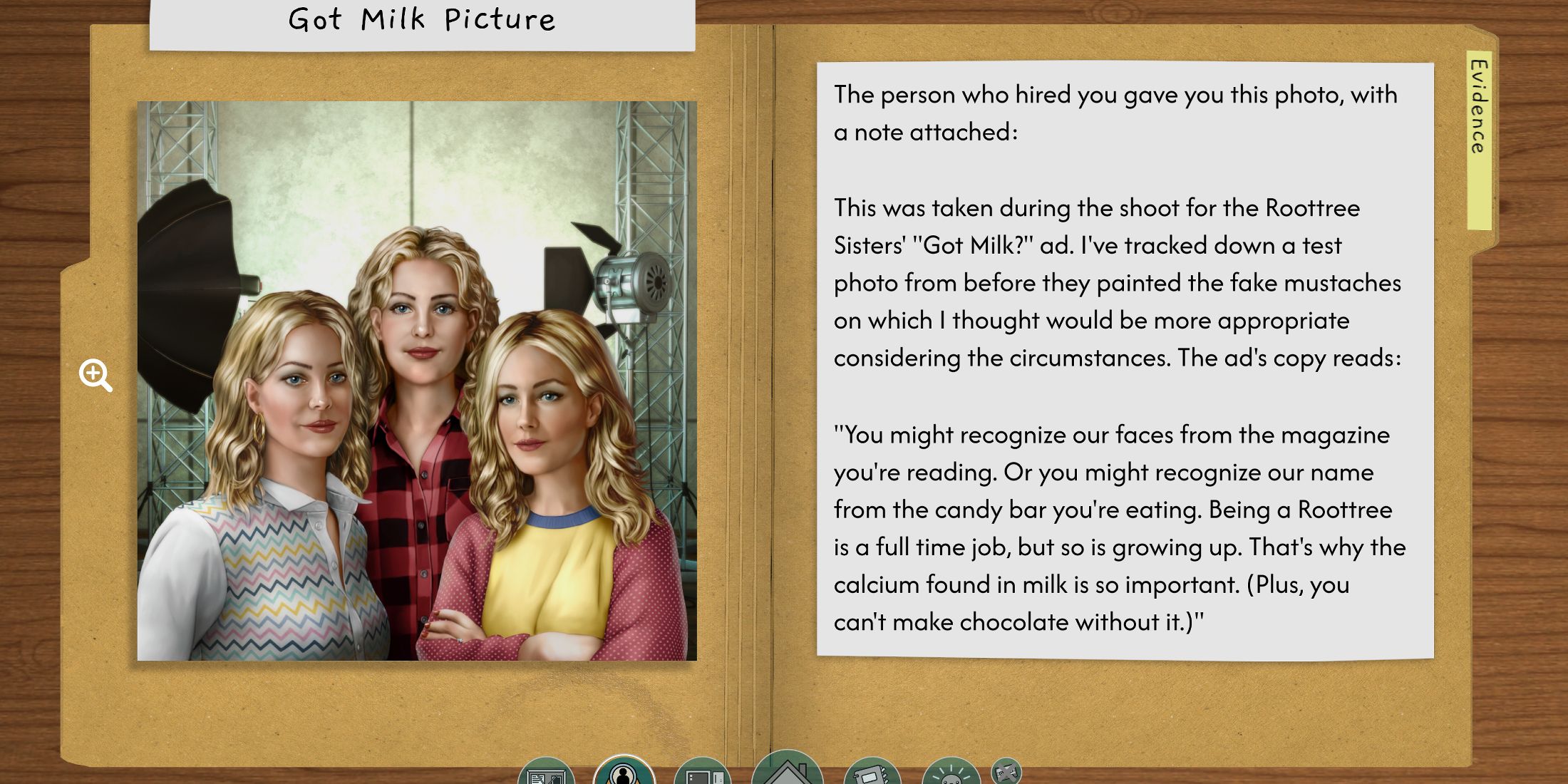
In Elias Roottree’s saying, “Family ties are stronger than molasses,” looms ominously throughout the family tree, and the game “The Roottrees are Dead” seems to validate this notion in its latter stages. Initially, the game pokes fun at the vastness of the Roottree lineage, but when players delve into it, they might initially feel overpowered by the size. As they acclimate, however, this sensation may subside, but finishing the entire tree is necessary to reach the conclusion. The challenge lies in the fact that “The Roottrees are Dead” doesn’t confirm solutions until three (and later four) blood relatives have been identified, making the completion of the tree feel like a laborious task once the final few branches remain. Additionally, each clue in “The Roottrees are Dead” relies heavily on a single major source, with many sources intertwining. Solving the less connected, more obscure pieces was such a time-consuming process that I needed to consult the rubber duck to complete the lower entries. However, I had no trouble uncovering the game’s main plot twist.
In the Steam version of the game, titled “Roottreemania“, addresses this concern by dispersing clues across various enigmatic resources. The experience offered by “Roottreemania” is as gratifying as the initial investigative journey, even though it’s more difficult. Unfortunately, there isn’t much to keep fans from repetitively examining the same 2.5 screens, with only a handful of mini-games sprinkled sporadically towards the end.
In many games, the copy-and-highlight features can be very useful but they do have their flaws. For instance, when players highlight something, like evidence or a term, it gets automatically searched on the SpiderSearch engine to save time. However, in the Roottree series, it’s not always clear to players that they are highlighting books, authors, or terms for an automatic search at the Public Library or Periodicals. It would be more intuitive if there was a simple button next to “search internet” for these specific items instead of requiring players to highlight them each time in their notes.
The Periodicals have a drop-down menu showing all the magazines found, but the Public Library needs both an author and a title, making it less convenient as it requires copying and pasting every time. A more user-friendly approach could be taken by integrating these searches directly into the game interface, making the experience smoother and more enjoyable for players.
Users can quickly copy and paste content on their computer by using the keyboard shortcuts Ctrl + C (to copy) and Ctrl + V (to paste). This is useful because the Roottree games do not have a built-in paste function, but it’s important to note that using these shortcuts may cause some visual issues.
The Roottrees are Dead and Roottreemania are an Acquired Taste

If gamers find pleasure in exploring sites such as Wikipedia, then they are likely to be engaged by “The Roottrees are Dead” and “Roottreemania”. The intrigue surrounding shady dealings behind the Roottrees is quickly revealed in the title, keeping players hooked. However, the storyline and investigative aspect may become monotonous for some, potentially causing frustration and boredom if they were expecting a more immersive gaming experience beyond a computer screen and evidence desk. This could also diminish the impact of the game’s concluding message, which is intended to be significant but might not resonate due to the challenges in reaching it.
The game skillfully allows players to deduce clues logically, even if they’re cleverly concealed within the intricate web of Roottree. However, as the game progresses and more clues are uncovered, it can become repetitive or tedious for some players. The narrative is rich and immersive, giving the impression of a real family that could have existed. Although this game stands out among mystery games due to its unique storytelling approach, it’s the way players must unravel the story that may limit its appeal.
The Roottrees are Dead is available now for PC. Game Rant received a PC code for this review.
Read More
- Top 8 UFC 5 Perks Every Fighter Should Use
- Unaware Atelier Master: New Trailer Reveals April 2025 Fantasy Adventure!
- How to Reach 80,000M in Dead Rails
- Unlock Roslit Bay’s Bestiary: Fisch Fishing Guide
- Toei Animation’s Controversial Change to Sanji’s Fight in One Piece Episode 1124
- How to Unlock the Mines in Cookie Run: Kingdom
- 8 Best Souls-Like Games With Co-op
- REPO: How To Fix Client Timeout
- Top 7 Tifa Mods for Final Fantasy 7 Rebirth
- Unleash Hell: Top10 Most Demanding Bosses in The First Berserker: Khazan
2025-02-07 11:14